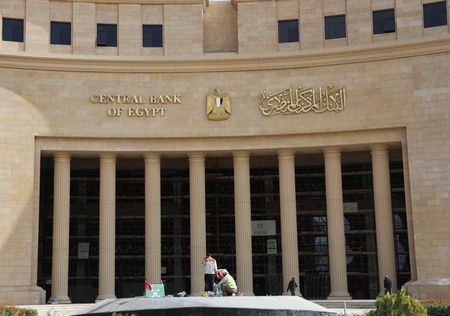JOHANNESBURG (Reuters) -South Africa’s rand firmed on Friday as Russian President Vladimir Putin said there had been some progress in talks with Ukraine, even as reports of its forces regrouping around Kyiv emerged.
At 1545 GMT, the rand was trading at 15.0144 against the dollar, 0.12% stronger than its previous close.
“There are certain positive shifts, negotiators on our side tell me,” Putin said in a meeting with his Belarusian counterpart Alexander Lukashenko, without sharing many details.
The rand had been gaining strength this week and was set to end 2.5% stronger from its close last Friday on the back of stronger commodity prices and a steady positive foreign fund inflow into the debt and equity market, as concerns around Russia mounted.
Even though the South African currency is considered a riskier asset, it has gained favour as higher prices of gold, palladium and coal boosted prospects of higher export income for the country.
“Looking at the rand, we are somewhat surprised that it has been so impervious to the negative EM (emerging market) sentiment,” a note from Anchor Capital said.
“For now, the nature of our export basket, high interest rates and limited contagion mean that we are being treated as one of the ‘good’ currencies to own,” the note said, but cautioned that if the tension from the Ukraine crises escalates further and the price of crude oil keeps increasing, the rand would “capitulate.”
Shares on the Johannesburg Stock Exchange (JSE), which have been touching record highs until early this week, have started to ease as commodity prices cooled off, pushing the main indexes to close at a net loss this week.
The benchmark all-share index ended down 0.28% at 73,686 points on Friday and the blue-chip index of top 40 companies closed down 0.36% at 67,331 points.
However the fall in the indexes was partly cushioned by the country’s well-capitalised private banks where shares had been strengthening on the back of solid earnings. The bank index closed up 2.62% on Friday.
The yield on the benchmark 2030 government bond was down 16 basis points at 9.740%.
(Reporting by Nqobile Dludla, Rachel Savage and Promit Mukherjee; Editing by Kim Coghill and Jonathan Oatis)










